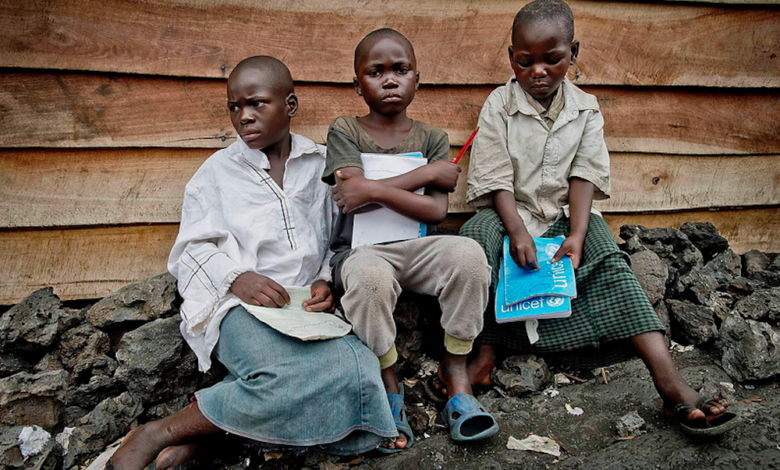Hundreds Of Children Separated From Parents In Renewed Clashes In Eastern DR Congo- Save The Children
Clashes between non-state armed groups and state armed groups in Rutshuru territory in the Democratic Republic of Congo have forced at least 10,400 households, including at least 43,000 children, from their homes in the past three months.

At least a hundred children have lost or have been separated from their parents during renewed clashes in the east of the Democratic Republic of Congo (DRC), Save the Children International (SCI) said in a new report.
According to the report, many unaccompanied children from Rutshuru in North Kivu province were separated from their parents or caregivers while fleeing for their lives as fighting intensified. Others lost their parents to the violence.
The organisation said it arranged foster care for these children while searching for their relatives.
Clashes between non-state armed groups and state armed groups in Rutshuru territory have forced at least 10,400 households, including at least 43,000 children, from their homes in the past three months.
Most families have moved to neighbouring territories in DRC, while more than 11,000 people have taken shelter across the border to Uganda. Nearly 60 per cent of those displaced by the violence are children.
Save the Children said it was “gravely concerned for the mental and physical wellbeing of these unaccompanied and separated children”.
Separated children face enormous challenges in meeting their basic needs, lacking the people in their lives who would usually help them find food, water, and shelter.
Amavi Akpamagbo, Save the Children’s Country Director in the DRC, explained that the crisis in DRC is a children’s crisis.
“Children are being doubly harmed by being forced to leave their home in terror and then losing their parents in the chaos while fleeing. Sometimes they lose track of their parents for days or even weeks, and in the most tragic situations, they lose their parents forever,” Akpamagbo said.
He added that across DRC, the SCI is seeing displaced families deprived of their basic needs, such as clean water, food, shelter, essential household items and primary health care.
About 64 per cent of the newly displaced people have found refuge in collective sites and centres such as churches, schools, and stadiums. The remaining people finding shelter with host families in a community already struggling with poverty and lacking food.
Support Our Journalism
There are millions of ordinary people affected by conflict in Africa whose stories are missing in the mainstream media. HumAngle is determined to tell those challenging and under-reported stories, hoping that the people impacted by these conflicts will find the safety and security they deserve.
To ensure that we continue to provide public service coverage, we have a small favour to ask you. We want you to be part of our journalistic endeavour by contributing a token to us.
Your donation will further promote a robust, free, and independent media.
Donate HereStay Closer To The Stories That Matter




